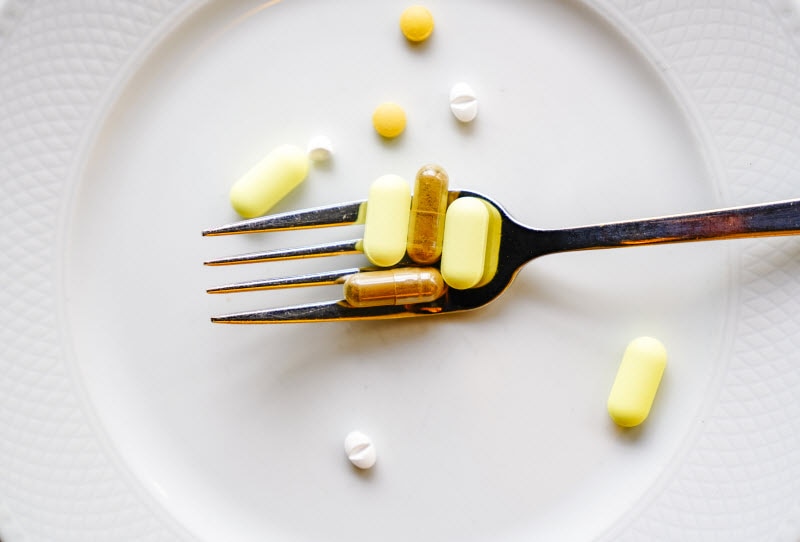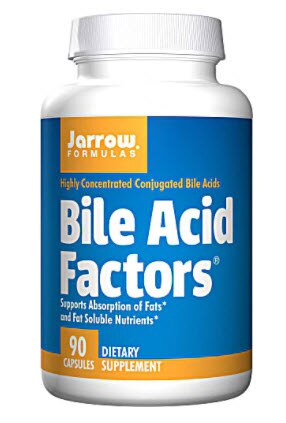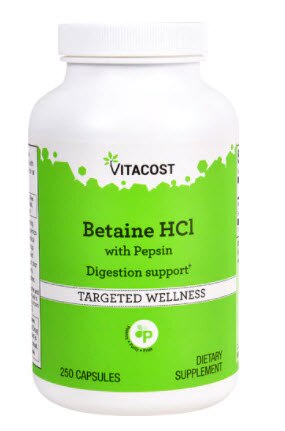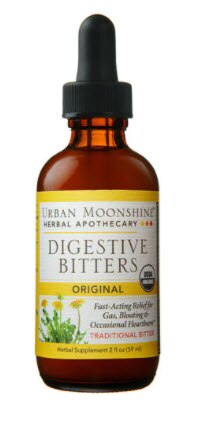Approximately four million Americans use probiotics on a regular basis. For a good cause, too: A mounting body of research demonstrates that the integrity of your gut health plays an enormous role in your general health, and the live microorganisms that make up probiotics can help foster intestinal—and overall— wellness.
And yet, probiotics, as beneficial as they may be, are not the only digestive health supplements around. Here’s a round-up of five, lesser-known—but just as effective—supplements that may facilitate a healthier gut.
![Facebook stats: 89 Likes 89 Comments 14 Shares 309 Engagements 6,702 5 Lesser-Known Digestive Health Supplements | Vitacost.com/blog]() Digestive Health Solutions
Digestive Health Solutions
1. Bile Acids
Also called bile salts, bile acids can be a boon for those who suffer from fatty stools (or steatorrhea), which is often indicated by diarrhea and floating stools.
How? A bit of biology: Your own natural bile acids are generated in the liver and then stowed—and concentrated—in your gallbladder. From there, they enter the small intestine when you eat, where they emulsify fats to assist with digestion.
When you’re low in bile acids, however, you not only endure the consequences through digestive issues but may also fall short on nutritional requirements, in that your body has a tougher time absorbing fat and fat-soluble vitamins.
To the rescue: the conjugated bile acids your body needs for proper digestion and assimilation. Clinical trials back these supplements, showing that they may aid in fat absorption and improve nutritional status. (Remember: Not all fats are bad, and your body requires good fats for optimal health.) What’s more, bile acids can be especially helpful for those who have had their gallbladders removed. One supplement to try: Jarrow Formulas Bile Acid Factors.
2. Proteases
Proteolytic enzymes—or proteases—are naturally produced in your pancreas, where they hydrolyze the peptide bonds in proteins, helping to break them down into the amino acids (or protein building blocks) your body needs, particularly your muscles and tissues. (Your brain needs them too, as they aid in regulating mood and sleep.)
While your body makes its own supply of these essential enzymes—and while they can be found in papaya, pineapple, kiwis, ginger and other foods—many choose to supplement with proteases to boost their gut health. Derived from both animal and plant sources, these supplements have been found to improve the digestibility of proteins such as meats, milk, cheese, fish, and eggs. Another study discovered that people with indigestion who took proteases experienced a reduction in bloating, abdominal pain, and heartburn.
3. Betaine HCL
An ideal amount of organically-occurring stomach acids is central to proper digestion: They foster protein digestion by activating pepsin (the chief digestive enzyme in your stomach), help you maintain a healthy balance of that oh-so-vital gut flora, and prompt the release of other intestinal enzymes.
As you age, however, your natural production of these acids declines (which may explain why that cheeseburger you downed in college was digested with ease but, later in life, causes tummy aches and indigestion). The supplement Betaine HCL may help. Formulated with hydrochloric acid, and often enhanced with other enzymes, they can replenish the acids your body necessitates for smooth digestion, while also helping you process proteins in the foods you eat. This particular supplement is an especially sound choice for the elderly, yes, but also for those who feel that food has a tendency to just sit in their stomach. (And we’ve all known that discomfort at some point.)
4. Herbal bitters
As touched upon in #1, digestive complications not only hurt—they can also mess with your facility to absorb the nutrients your body needs to thrive. Herbal bitters, which were once sold as patent medicines and later became a leading ingredient in classic cocktails (think: a Manhattan or an Old-Fashioned), help rouse the digestive secretions we need to break down food, including saliva and bile.
How? As Meghan Telpner reports in Best Health, “From an evolutionary perspective, humans are naturally inclined to dislike anything bitter,” as it’s a warning sign “to keep us safe from poison…As a biological response to bitter tastes, the body increases digestive juice production as a protective mechanism to help us break down and eliminate the poison.”
Used in herbal medicine to enhance digestion (and, as such, also called digestive bitters), herbal bitters range from gentian, which operates as a stomach tonic, to turmeric, which helps fuel movement throughout the digestive tract. What’s more, bitters impact the liver, gall bladder, and pancreas, and may help normalize blood sugar and encourage the release of bile and enzymes necessary for the digestion of fats and oils. Best part yet? They offer fast-acting relief for gas and bloating—and a calmer stomach is key to feeling great.
5. Lemon water
It sounds almost too simple to be true: Drink a glass of lemon water before a meal and jumpstart—and soothe—your digestion. Yet doing so can help prime the stomach for food while also increasing its ability to eliminate toxins.
Indeed, in Ayurvedic medicine, it’s believed that the sour taste of lemons helps motivate your “agni”—and a strong agni kick-starts the entire digestive process. Furthermore, lemon water helps you stay hydrated (crucial for a healthy gut), reduces the chances of constipation, and contains a handsome amount of skin-beautifying vitamin C.
†These statements have not been approved by the Food and Drug Administration. These products are not intended to diagnose, treat, cure or prevent disease.
Featured products:




